The pictures below come from a Victorian property in Spalding which had a hallway tiled in original Minton Hollins tiles. This is a famous tile manufacturer based in Staffordshire in the 1800’s and are very sought after. You often hear of homeowners claiming to have a Minton tiled floor but its very difficult to prove unless you can check underneath the tile to see the manufacturers mark.
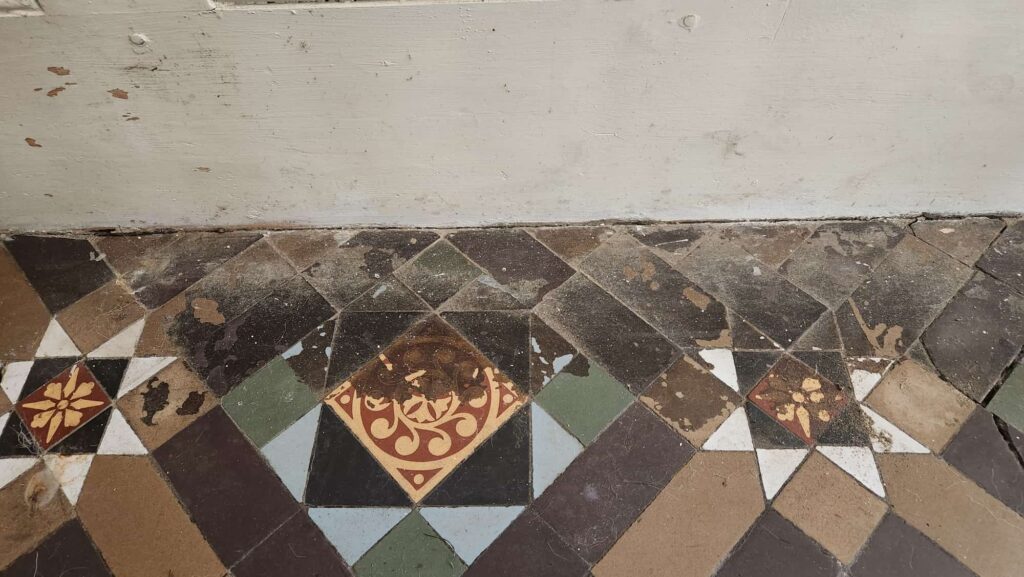
The floor was in a bad state of repair and on inspection I could see there were many loose and cracked tiles and some areas where bad repairs had been carried out. After reviewing the whole floor, I created a quote for resolving all the tiling issues, deep cleaning and then sealing with a matt breathable sealer.
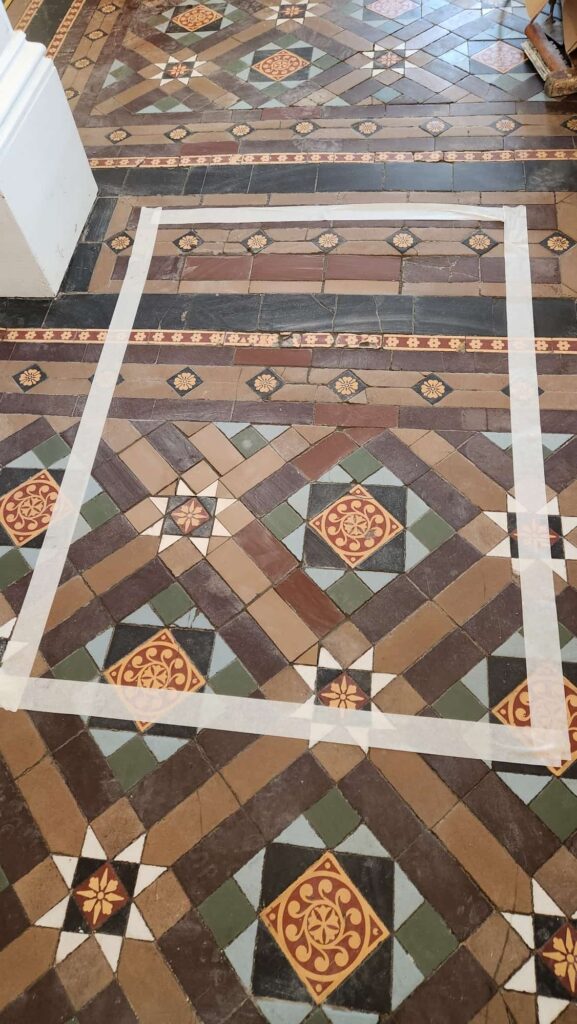
During the inspection I noticed there were five or six tiles that had been laid upside down to reveal the Minton Hollins & Co mark confirming the provenance of the floor. It may sound unusual but it not that uncommon to find tiles laid upside down on old floors like this and it certainly adds character.
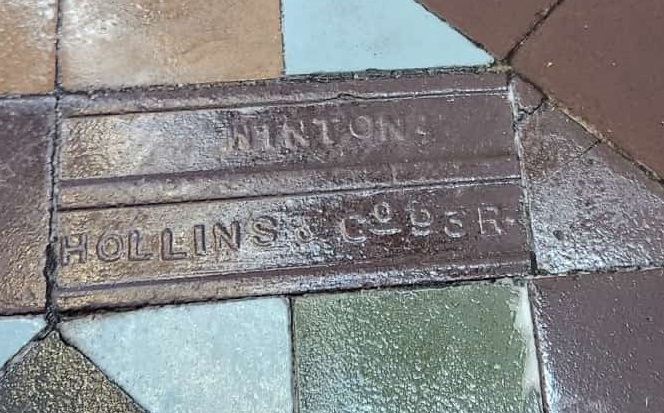
Happy with the quote and keen to have the floor restored we set a date for the work to start which would take several days due to the tiling work that was required.
Deep Cleaning a Large Victorian Hallway
Before starting with the cleaning, the first task was to sort out all the tiling issues. Loose and broken tiles had to be carefully removed in order not to disturb adjacent tiles and then the replacements were cut to size and fitted to match the original pattern.
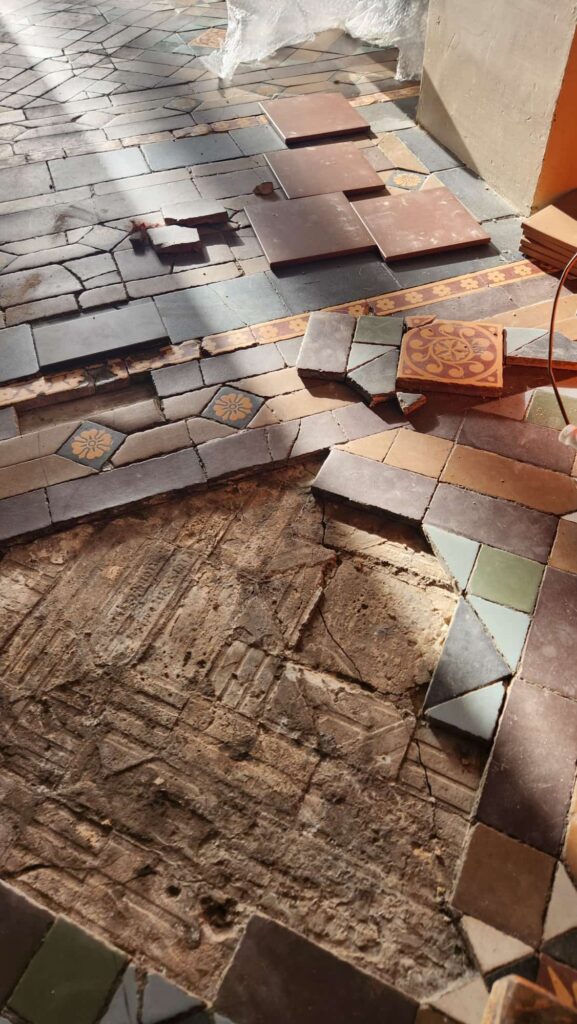
My customer had managed to source the replacement tiles which isn’t as difficult as you might think as they are still very popular today and there are several manufacturers still producing them.
Then on day two the floor was deep cleaned using a strong dilution of Tile Doctor Pro-Clean to breakdown and release the dirt in the tiles. I let the Pro-Clean soak in for about ten minutes before scrubbing it in with coarse 100 and 200-grit diamond pads to remove ingrained dirt and any surface patination on the tiles. Once done the soiling was rinsed off with water and then extracted with a wet vacuum.
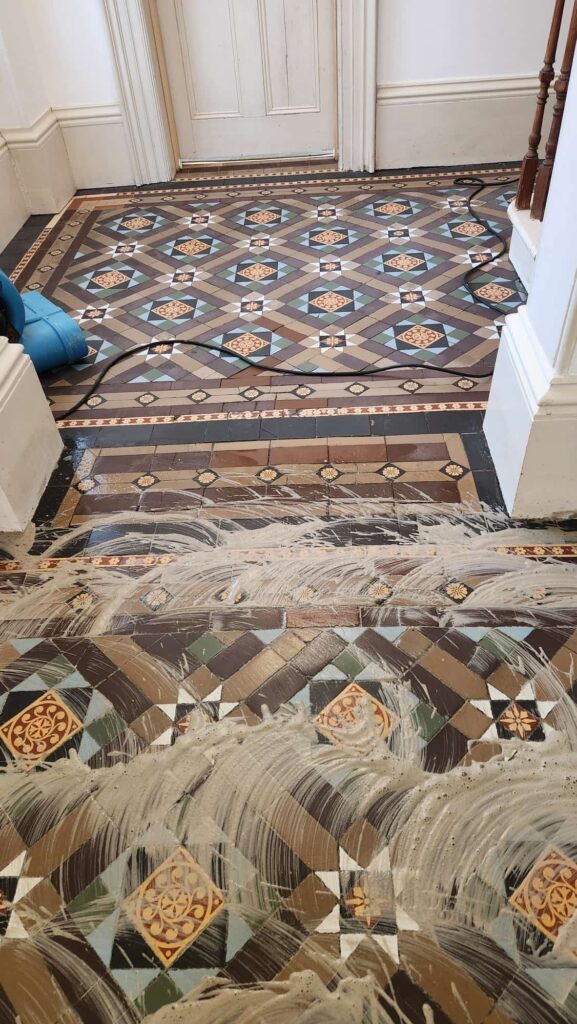
The floor was then given an acid wash using Tile Doctor Acid Gel to neutralise the PH level of the floor after the use of Pro-Clean which is a strong alkaline cleaning product. This also helps counter any efflorescence salt issues that may be present in the floor and generally brightens up the tiles further by removing any surface grout. The whole floor was then scrubbed and rinsed with water and then left to dry off.
Sealing Victorian Tiles
A lot of water is used during the cleaning process and I needed the floor to dry out completely before the final step of applying the sealer so I left a couple of air movers in place to speed things up.
 |
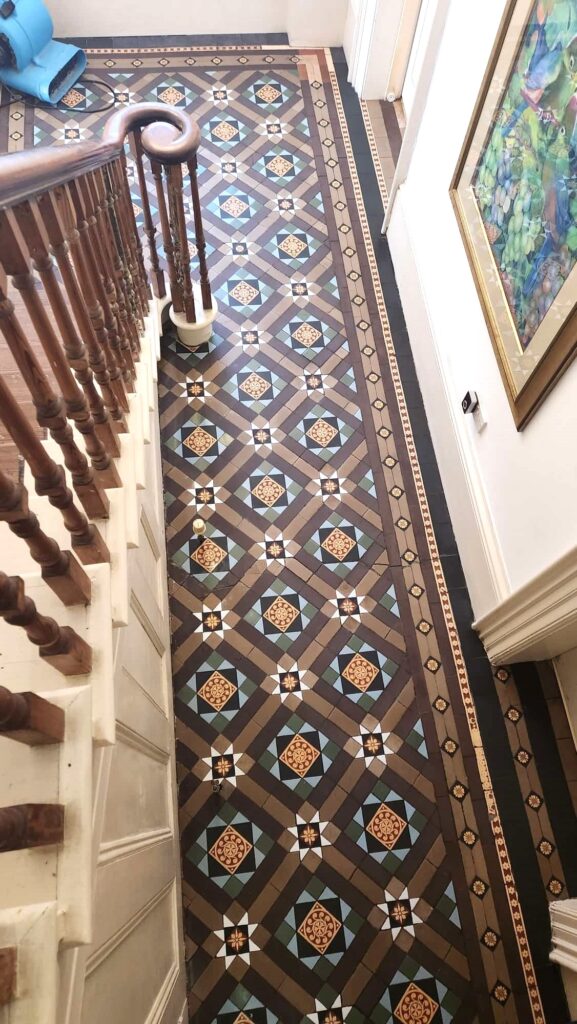 |
I returned a few days later to seal the tiles with Tile Doctor Colour Grow which is a fully breathable impregnating sealer that won’t scratch or peel and will enhance the colour in the tile. Breathable sealers allow moisture in the subfloor to rise thought the tile and evaporate at the surface. This is an important consideration for an old floor like this one as it won’t have a damp proof membrane installed and you don’t want damp building up under the floor where it can reach out to the walls.
The work was transformational and the results really speak for themselves. Certainly, my customer was delighted with their new period floor which is a great feature to have in the property and as mentioned before very sought after.
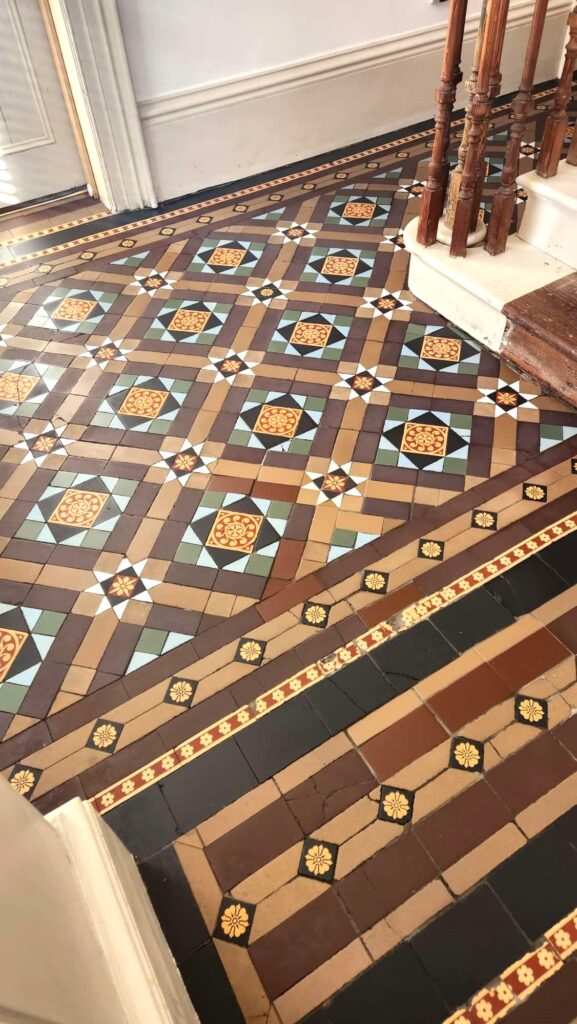
For aftercare cleaning of this floor, I recommend using a pH neutral tile cleaning products such as Tile Doctor Neutral Tile Cleaner; reason being that other products can simply too strong and contain bleach which can damage the sealer.

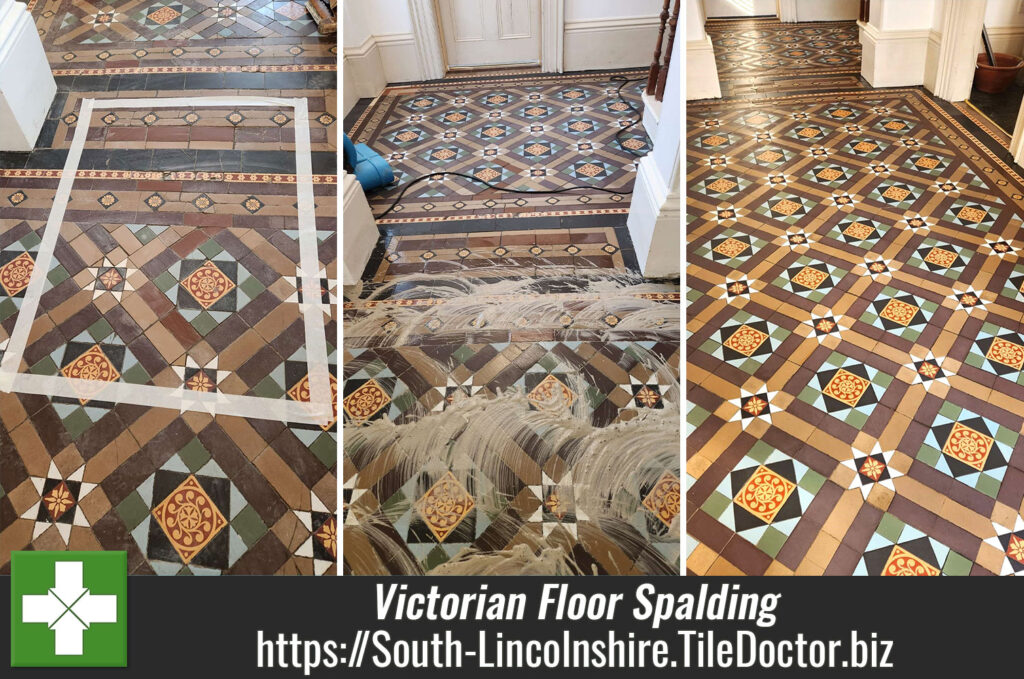
Do you have a problem with your Tile, Stone or Grout? If so don’t hesitate to contact Tile Doctor on 0345 512 0122, they cover the whole of the UK and will arrange for your nearest Tile Doctor to survey your installation and provide you with a free, no obligation quotation to remedy the situation.